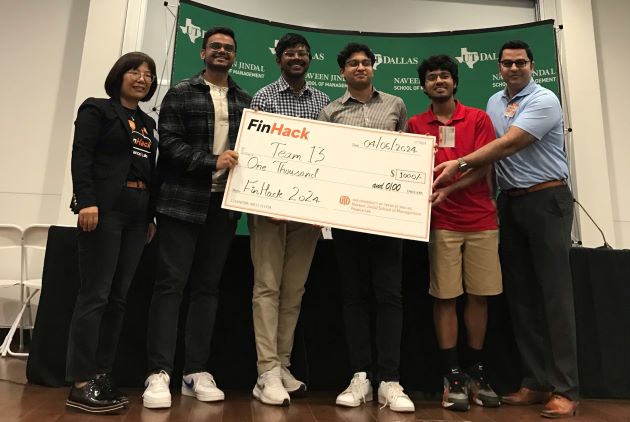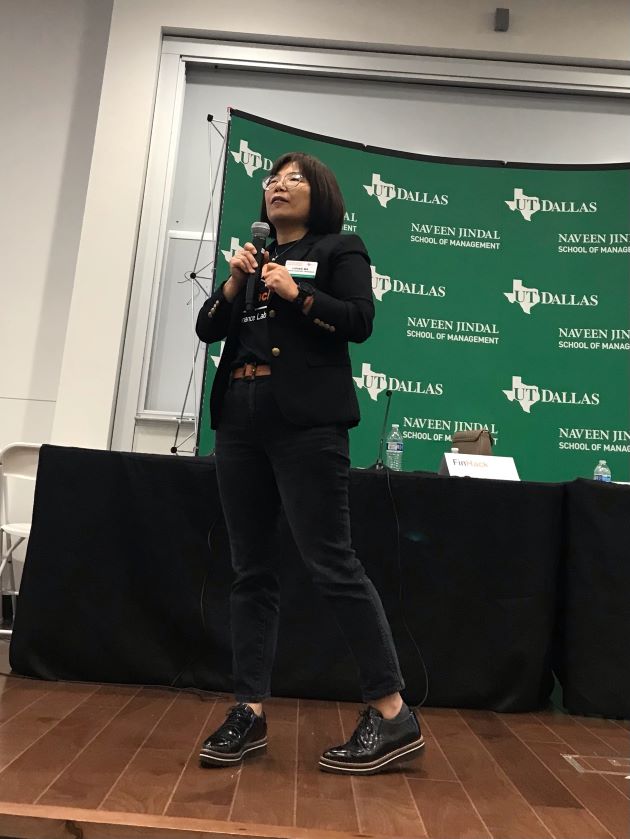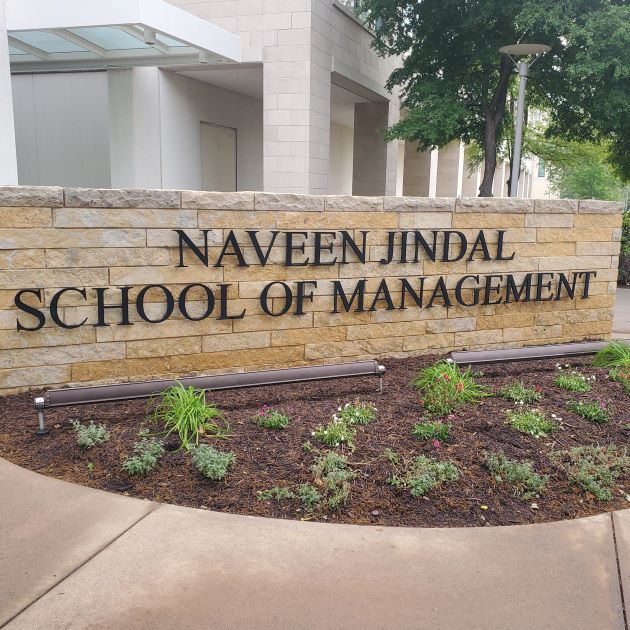Students from The University of Texas at Dallas got little sleep and plenty of encouragement at FinHack 2024, a competition presented by the Naveen Jindal School of Management’s Finance Lab. Held April 5-6, the third annual “hackathon” — a social-coding event in which students attempted to solve business problems with their financial and technology skills.

The event featured a series of speaker sessions and a complementary panel discussion in the Davidson Auditorium that had a theme of integration of AI in finance, along with an announcement of the winners.

Many members of the 29 teams didn’t know each other and that was part of the point, said Dr. Liping Ma, clinical assistant professor in the Jindal School’s Finance and Managerial Economics Area and chair of FinHack 2024.
“It’s an engagement and collaboration for student participants, industry leaders, and professors from different fields,” she said. “To hack a topic, some students have finance knowledge, some where their skills are getting into business analytics and others in technology. These different talents will be working more and more together in the real world, so why not here?”
The team that took home the first place $1,000 prize was elated and educated by the event.
“I think one of the biggest benefits wasn’t just about hacking but putting up a product idea and solving,” said Harsha Kolachina, a graduate student in business analytics and a member of the winning team. “We had a data set about the banking industry and a problem in the space is retaining customers. A big part was also coming up with a vision. Models come into it, there is the presentation aspect of it and web application building to showcase our work. The biggest takeaway was how complicated problems like this can be solved through utilizing different skills.”
The first-place team consisted of Kolachina; Mihir Padsumbiya, a business analytics graduate student; Gurram Pavani Sri Harsha, a finance graduate student; and Viswaretas Kotra, a computer science freshman.
Other competitors also commented on the enrichment of the competition. Claudius Galo, a graduate student in computational biology, was exhausted and impressed by it.
“I got here Friday night after work, I didn’t sleep a lot and really worked the night away,” he said. “I took a nap on a table while trying to figure out, ‘could we do this thing we wanted to do?’ This event was atypical of other hackathons in how in-depth in went. I came into this hackathon wanting to do a specific project on sentiment analysis and I didn’t expect it would be one of the options, but it was. I was happy to see that.”
Another team found the collaboration aspect to be a big lesson.
“It’s fun to work in a group and it’s hours constantly talking back and forth on ideas,” said Anish Beeram, a finance junior. “And implementing them. Overall, it was a great experience. Choosing the prompt took a while but the choice was an important one.”
Ma hoped that it was an unforgettable experience for the more than 110 student participants, 25 professionals including alumni and professors, and the Finance Lab team.
“They saw that ideas and analytics approach are great, but presentation skills can be very important,” she said. “Brilliant ideas won’t mean much if you can’t get them across to your audience. They will be in these types of situations many more times in life — here was a chance to help them become a little more prepared.”





